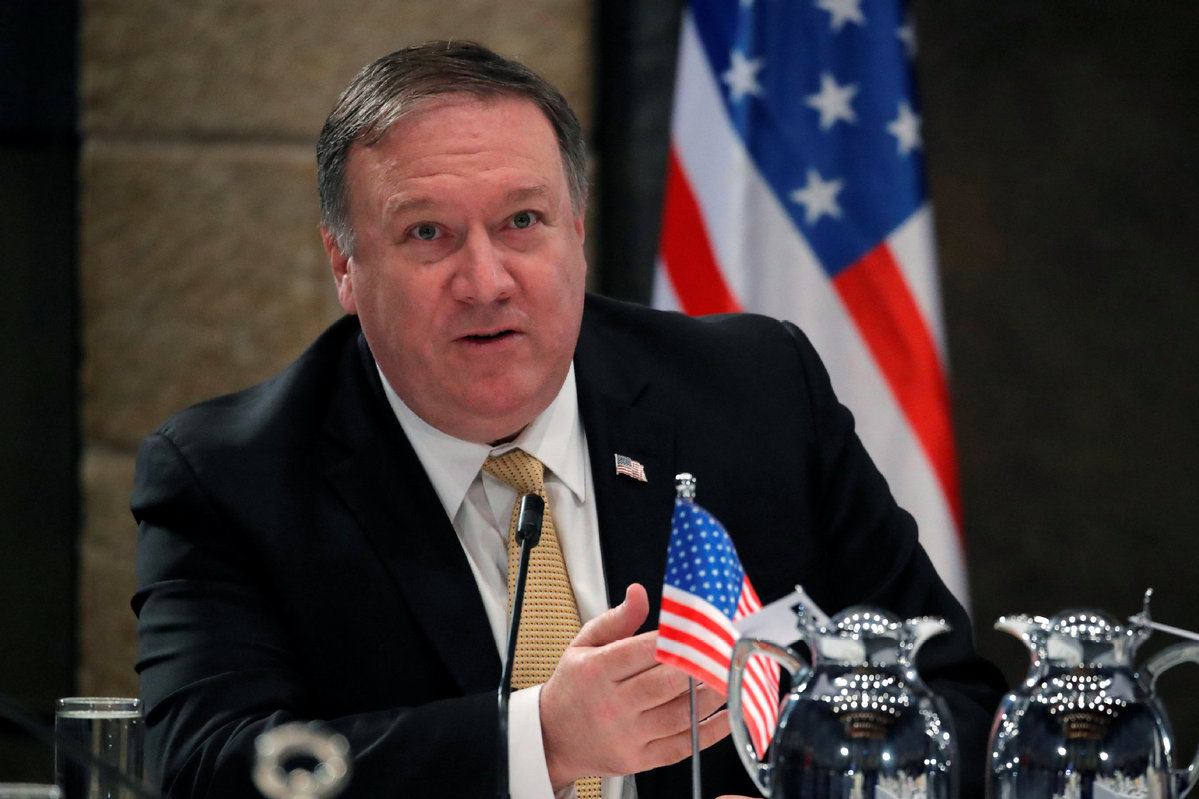Smear campaign against China won't make US great again


Senior US officials like to talk about reciprocity in relations with China. But one thing that China will not and cannot reciprocate is sending its officials around the world to defame another country. Which is exactly what US Secretary of State Mike Pompeo did in Chile on April 12 when he slandered Beijing, and tried to drive a wedge between Latin American countries and China.
Such a despicable act is nothing new. US Vice-President Mike Pence indulged in the same game when he toured Central America in October. And National Security Advisor John Bolton exhibited the same trait when he rolled out Washington's Africa strategy in December.
Pence and Pompeo also threatened the US' European allies in February with possible US action if they included Huawei in their 5G networks. Hillary Clinton and Rex Tillerson, too, slandered China while visiting Africa and Latin America as secretary of state.
The smear campaign this time appears bigger and more desperate. US diplomatic missions from Beijing to Brussels tweeted Pompeo's malicious statements. It seems US officials' primary job is no longer to promote the US but to spread malicious and even fabricated stories about China, everything from Huawei to the Belt and Road Initiative.
Fear-mongering about China has long been a favorite pastime in the US presidential campaign. It has now acquired epidemic proportions, infecting many in the US government, think tanks and news media.
When I raised the issue in a column years ago, arguing that Chinese officials could easily give a long list of the US' heinous crimes, a senior White House official said privately that I had hit the nail on the head. A China hand, he disapproved of the US behavior.
I can't recall the last time a Chinese official visiting another country badmouthing the US. It's not a decent thing for any government to engage in. But Pompeo should not be given a free pass. That's why I applauded Chinese ambassador to Chile Xu Bu when he said, "Pompeo has lost his mind". Foreign Ministry spokesman Lu Kang, too, was blunt saying: "A lie will remain a lie, even if repeated a thousand times."
Pompeo's self-defeating words won't fool Latin American countries. By lecturing Latin American countries, he was assuming that they don't know how to run their countries and should listen to the US which still considers the region its backyard. It's an insult to any sovereign nation.
No matter how hard Pompeo tries to divert the attention of the Latin American people, he cannot change what the US administrations have done in Latin America, from engineering coups and assassinations to bullying and invading countries.
Harvest of Empire, a 2012 documentary based on a book by journalist Juan Gonzalez, tells the history of US intervention in Latin America and how it has led to the immigration issues facing the US today. According to a Pew survey last year, only 47 percent of the respondents in seven Latin American countries said they have a favorable view of the US. In Chile, which Pompeo visited last week, the positive view about the US had plummeted to 39 percent in 2017 and confidence in US leadership was a dismal 12 percent.
Gallup poll released last year revealed that the US approval rate has dropped to a new low in Latin America, with only 24 percent supporting the US' leadership in the region.
If the US truly wants to help Latin American or African countries, it does not need to vilify China. Instead, it should invest more in those regions and countries to build roads, bridges and power stations, things that China is already doing.
That will be an exhibition of a healthy mindset.
The author is chief of China Daily EU Bureau based in Brussels. chenweihua@chinadaily.com.cn


































